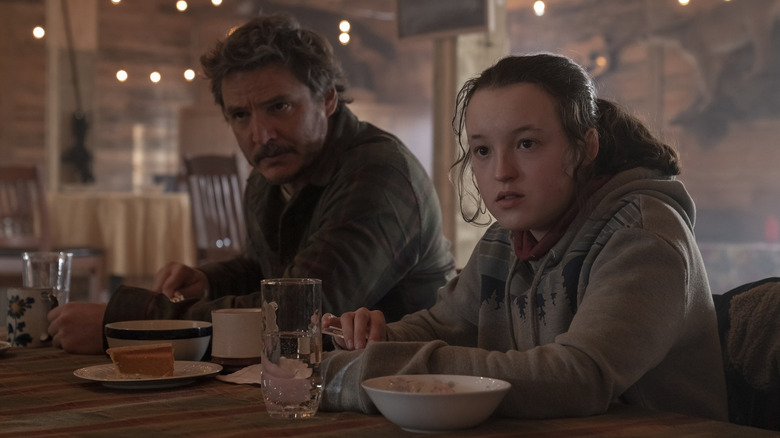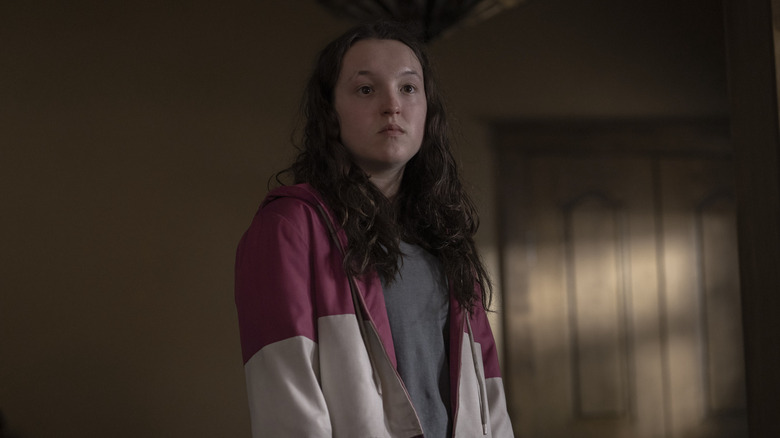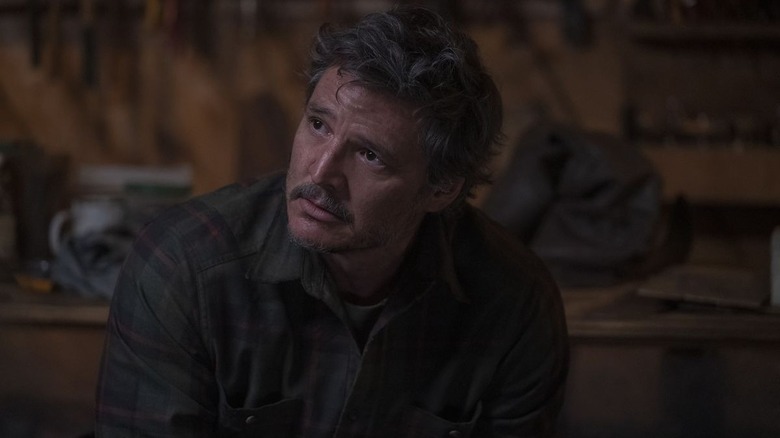Why The Last Of Us Changed An 'Iconic' Joel Line From The Video Game
"The Last of Us" is a triumph of video game adaptation. This is far from the first great video game show or film, but it is the best live-action one. Granted, the game was already very cinematic and plot-heavy, making it easier to imagine a TV version than something like "Sonic the Hedgehog" or "League of Legends."
Still, the HBO show has not only gone a good job of bringing the story of Joel and Ellie to the screen faithfully — even if it at times feels like you are literally watching only the cutscenes. And yet, most of the best scenes in the season so far have been original for the show, taking what was already hinted at in the games but expanding it for the medium of TV. Scenes like the first two episodes' cold opens, which take the implications of the story, but expand it in ways the game's Joel and Ellie-centric POV didn't leave room for, adding to the overall world-building with some context. There's also the entirety of episode 3, which is a huge divergence from the games but resulted in one of the best episodes of TV in years.
Every episode of "The Last of Us" features at least one scene which feels lifted straight from the game, but with a couple of key changes to account for a different medium. This includes episode 6, an episode that — just like the game — is lacking in infected, but rich in character development and heartfelt moments. The episode also brings some changes big and small, including a very popular line from the games
Treading on mighty thin ice
in the episode, Joel and Ellie finally find Tommy, discovering that he is not lost in the woods, but living in a community with a surprising amount of comforts, from a cinema to a bar. But while the residents of Jackson have it pretty good, Joel breaks down in front of Tommy, asking him to take Ellie and finish the job because he doesn't think he's capable of doing it. Joel has failed too many things, he's not strong enough.
But when he tries to sell Ellie on the idea, she talks back at him, realizing there is something else going on. Joel is getting attached to her, and he is afraid she will die the way Sarah did. So she confronts Joel about it, and he snaps. In the game, when Ellie brings up Sarah and says she is not going to die like she did, Joel tells her she is "treading on some mighty thin ice." In the show, the scene plays out virtually the same, from the staging to the movements (including Ellie shoving Joel), but that one line plays out slightly differently. Pedro Pascal's Joel tells Ellie "No. Don't say another word," when she brings up Sarah.
Ch-ch-ch-ch-changes
Some game purists may scoff at the change, but it makes sense. In the latest episode of the official "The Last of Us" podcast, co-creator Craig Mazin talked about wanting to change that line. As he explains, the episode already adds some changes, like the fact that we actually get to see Jackson here much earlier than in the game.
But when it came to that particular scene, he wanted to preserve as much of it as possible. "I want the wallpaper to be the same, I want her sitting where she was sitting, I want her reading the diary, and I want to feel all of it," he said. There were two clear exceptions, Joel ending the conversation with "come dawn, we go our separate ways" and the "don't say another word" part.
The change stems from the fact that this is a very different Joel than Troy Baker's from the games, his dialect and behavior are different, as Neil Druckmann pointed out. More importantly, it is Troy Baker himself who hits the nail on the head, pointing out what Pascal conveys through the line. You feel the rage and the hurt in his voice. He is not threatening Ellie (whereas the original line seems more like a threat), but he is pleading with her not to bring back such a painful memory, not to let him get angrier because of it. "It's almost the same 'Please don't' that he gave to the sniper," in episode 5, Baker said. It's a simple change, one many people wouldn't even notice, but it paints a picture of how different, and gentler, this Joel is compared to the games.


